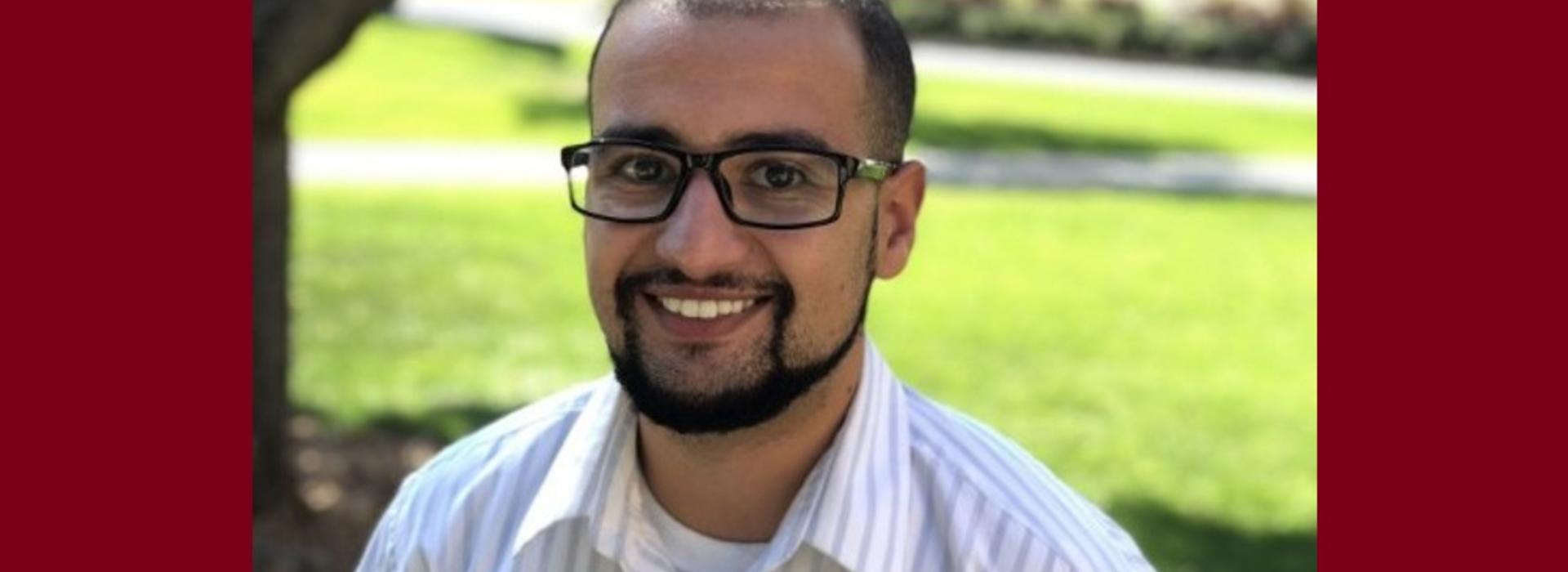
Meet Dr. Salama — A New Medical Student Resource
The mental health and wellbeing of medical students is a high priority for the University of Minnesota Medical School.
Now, with the addition of Habib Salama, PsyD, as the Postdoctoral Fellow in Counseling Psychology, the Office of Learner Development is able to increase the number of students who can be helped.
Dr. Salama joins Maryanne Reilly-Spong, PhD, in providing performance coaching and Confidential Bridging Counseling (CBC) services — a free in-house counseling service created to address the specific issues of availability and accessibility of mental healthcare for students. Students seeking mental health support often struggle with long waitlists. CBC helps to bridge that gap, provides support and points students in the right direction for further care.
“As young adults, we go through ridiculous transformations. We come to know ourselves in ways that we never thought we would,” Dr. Salama said. “Students are coming into this new experience. They don’t have anyone overlooking the decisions and choices they make. And, in those decisions and choices we make, is really where we get to learn about ourselves.”
Dr. Salama describes the students’ path like a math equation. There is an input, a confusing box in the middle and then an output. The input is a student needing to go through the program, and the output is that they need to graduate and become a doctor. Dr. Salama sees himself as everything in between.
“It would be wonderful if it was as simple as going to school and finishing with a degree, but there are way too many factors that interrupt this bottleneck process — people in our lives die, people that we love break up with us, friendships end, we experience imposter syndrome and so on,” Dr. Salama said. “That is where having services like CBC is really important in being able to help students navigate those things.”
Dr. Salama emphasizes how easy it is to get disconnected with who you are and forget the things that you really value.
“Pretty soon, we find ourselves forgetting why we are doing this to begin with,” Dr. Salama said. “My goal is to help students reconnect with those things — some of the fears, feelings and anxieties that have started to feel taboo — and to do it in a way that feels right to them.”
Dr. Salama compares himself to a navigator.
“I don't know where you want to go, but if you tell me where you want to go, I can know what's ahead and help you navigate it,” he said.
Normalizing Mental Healthcare
Dr. Salama not only values normalizing seeking mental health help, but also celebrates the idea that someone would seek support or some form of bridging.
“Having someone acknowledge ‘I need something. I don’t know what it is, but I need something’ and asking for help to figure it out is a huge step,” Dr. Salama said. “I think that is something that all of us need.”
He is also working to combat the misconceptions of seeking help.
“When students meet me for the first time, they may feel worried or not know what to expect,” Dr. Salama said. “My hope is for students to leave feeling supported. They got what they needed. They got to breathe a little easier. They got an opportunity to feel more freely so they can live and learn more freely.”
Experience of the student
Having just graduated this past summer, there are parts of Dr. Salama that still feel tied to the experience of being a student.
“When I hear about the frustrations of students and their feelings of not being heard, I feel very much aligned with those things having experienced them as a student recently myself. And now, I am seeing behind the curtain of how structural reforms are being handled and approached,” Dr. Salama said. “That is something that I want to bring into this position — there is someone that has some level of arm reach to the experience of the student and can identify how those experiences can be better represented behind the proverbial curtain.”